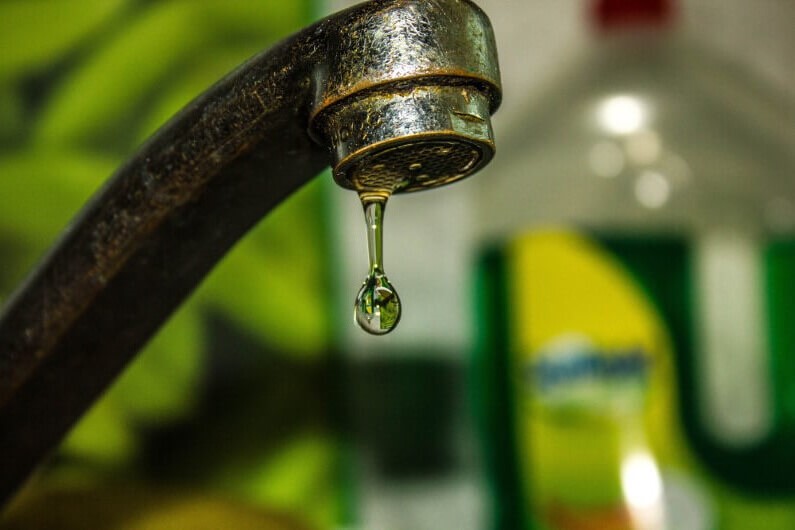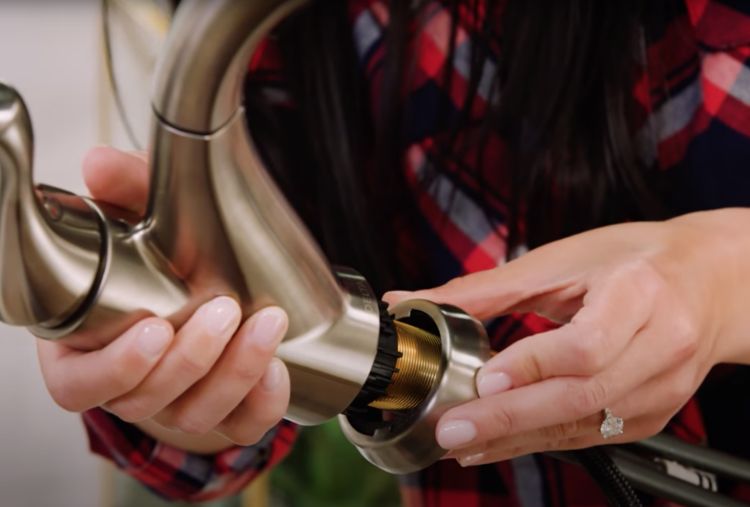How It's Critical to Rectify a Leaking Faucet
How It's Critical to Rectify a Leaking Faucet
Blog Article
Are you trying to locate information involving Why Are My Faucets Dripping (And Can I Fix It Myself)??

Trickling taps could feel like a small trouble, however their impact surpasses simply the inconvenience of the sound. From drainage to sustaining unnecessary economic expenses and health dangers, ignoring a trickling faucet can bring about different consequences. In this post, we'll delve into why it's critical to address this usual household problem promptly and successfully.
Waste of Water
Ecological Impact
Leaking taps add considerably to water waste. According to the Environmental Protection Agency (EPA), a solitary faucet leaking at one drip per second can throw away more than 3,000 gallons of water each year. This not only pressures water sources yet also influences communities and wild animals based on them.
Step-by-Step Overview to Fixing a Dripping Tap
Devices Called for
Before attempting to deal with a dripping faucet, collect the necessary devices, consisting of a flexible wrench, screwdrivers, substitute parts (such as washers or cartridges), and plumber's tape.
Typical Tap Issues and Their Solutions
Recognize the sort of faucet and the specific issue triggering the drip. Common problems consist of worn-out washers, rusty valve seats, or faulty O-rings. Describe manufacturer directions or on-line tutorials for step-by-step assistance on repair work.
Financial Prices
Increased Water Bills
Past the ecological influence, trickling taps can blow up water costs substantially. The collected wastage in time equates right into greater utility expenses, which might have been stayed clear of with prompt repairs.
Potential Property Damage
Moreover, prolonged dripping can result in damage to fixtures and surfaces bordering the tap. Water buildup can create staining, deterioration, and even structural concerns if left neglected, leading to additional repair prices.
Wellness Worries
Mold and Mold Development
The constant visibility of moisture from a leaking faucet develops a suitable environment for mold and mildew and mildew development. These fungi not just compromise interior air quality however also present health and wellness threats, particularly for people with respiratory conditions or allergic reactions.
Waterborne Diseases
Stagnant water in trickling taps can become a breeding place for microorganisms and other microorganisms, raising the threat of waterborne diseases. Contaminants such as Legionella germs prosper in stationary water, possibly bring about significant illnesses when ingested or breathed in.
Do it yourself vs. Expert Repair
Pros and Cons of Do It Yourself Repair Work
While some might try to fix a trickling faucet themselves, do it yourself fixings come with their very own set of challenges. Without appropriate expertise and devices, do it yourself efforts can worsen the concern or bring about insufficient repair work, prolonging the issue.
Benefits of Working With a Professional Plumber
Working with an expert plumber ensures that the underlying root cause of the dripping tap is dealt with properly. Plumbing technicians have the competence and tools to diagnose and repair faucet problems successfully, conserving time and reducing the danger of additional damages.
Environmental Obligation
Private Payment to Preservation
Taking obligation for dealing with trickling taps straightens with more comprehensive initiatives towards water conservation and environmental sustainability. Every individual's actions jointly make a significant impact on preserving priceless sources.
Sustainable Living Practices
By prioritizing punctual repair services and embracing water-saving practices, people add to sustainable living techniques that benefit both present and future generations.
Preventive Measures
Normal Maintenance Tips
To stop leaking taps, carry out regular upkeep such as cleaning aerators, checking for leaks, and replacing damaged parts quickly. In addition, consider setting up water-saving devices or upgrading to extra efficient fixtures.
Value of Prompt Services
Addressing leaking faucets as quickly as they're seen prevents further water wastage and potential damage, eventually saving both water and cash in the future.
Influence On Residential Or Commercial Property Value
Perception of Well-Maintained Residential Or Commercial Property
Maintaining a residential property in good condition, consisting of attending to maintenance issues like trickling taps, improves its perceived worth and charm among potential buyers or lessees.
Impact on Resale Value
Properties with well-kept plumbing components, including faucets, command greater resale values in the property market. Dealing with trickling taps can contribute to a favorable impact throughout residential property assessments and arrangements.
Final thought
Dealing with a dripping tap exceeds mere convenience; it's a crucial action towards conserving water, minimizing economic prices, and safeguarding health and wellness and property. Whether through DIY repair services or expert help, acting to take care of leaking taps is a little yet impactful method to promote responsible stewardship of sources and add to a healthier, much more sustainable future.
How to Fix a Leaky Faucet: Step-by-Step Repair Guide
A leaky faucet may seem like a simple annoyance, but if it's not fixed promptly, that leak could cost hundreds to potentially thousands. From water damage to mold, mildew, and high water bills, even a tiny leak can be catastrophic if left unattended. Damage like this can even affect the overall value of your home, so it's important to take the right approach for leaky faucet repair. You may need the help of a plumber in some cases, but we've got a few tips you can try on how to fix a leaky faucet before calling the pros.
Four Faucet Types
When you're learning how to fix a leaky faucet, the first step is knowing what kind of faucet you're working with! There are four common types.
Cartridge Faucets
Cartridge faucets come in one- or two-handled varieties. In one-handled cartridge faucets, hot and cold water combines in a single cartridge. In the two-handled versions, hot and cold water are controlled separately and mixed in the faucet.
Ball Faucets
Ball faucets have a single lever you push up and down to adjust the pressure and rotate to change the temperature. A slotted metal ball controls the amount of water allowed into the spout.
Compression Washer Faucets
They're the oldest type of faucet, but they're still used in many homes — especially older ones. Compression faucets have two separate handles that, when turned, raise or lower the washer that seals a water valve. This valve stops water from flowing through the faucet when it is turned off.
Disc Faucets
Disc faucets rarely need to be repaired due to their maintenance-free design. The water flow is controlled by two discs — the upper one raises and lowers against a fixed lower disc, creating a watertight seal. If your disc faucet starts leaking, you may need to replace the seals or clean residue buildup from the inlets.
Fixing a Leaky Faucet
Step 1: Turn Off the Water
Whether you're learning how to fix a leaky bathtub faucet or how to fix a leaky kitchen faucet, always turn off the water supply to your working area when you're fixing a leak. The last thing you want is a flood added to your list of things to fix.
Look for the shutoff valves below your sink or around the tub and turn them clockwise to stop the water flow. If your faucet doesn't have shutoff valves, you may need to turn off the water for the whole house. Check to make sure it's off by turning the faucet on. If nothing comes out, you're ready to start the repair.
Step 2: Take Apart the Faucet
How you disassemble your faucet depends on the type of fixture you have. You can use a flathead screwdriver to remove the caps on top of the handle or handles for cartridge and compression faucets. Inside, you should see handle screws. Unscrew these with a screwdriver to remove the handle.
Disc- and ball-style faucets will typically have an inlet screw near the handle, and removing that will reveal the interior of the faucet.
Detach the Valve Stem
For cartridge- and compression-style faucets, you'll see the inner valve stem or cartridge once you remove the faucet handles. If you have a compression faucet, unscrew the brass valve stem. If you have a cartridge faucet, pull out the cartridge. If your cartridge has been in place for a while, it may require some tools or extra force to remove it due to mineral deposits.
Examine and Replace Parts
Once you've removed the parts, check them out to confirm what needs to be replaced. You may see corroded rubber washers, O-rings, stems, or cartridges. On a ball-style faucet, check the seats and springs for damage.
If you need to repair a leaky disc faucet, check the inlet and seals on the lower disc.
Once you determine what parts must be replaced, visit your local hardware store. Bring the damaged parts with you to ensure you can purchase the correct components to replace them.
Clean Valves and Faucet Cavity
If you've removed a stem or cartridge, you may notice mineral buildup in the faucet's threads. Use white vinegar to clean the valve seat by soaking it for a few minutes, then scrub it away with a soft toothbrush and rinse with warm water. You can also clean the interior of the faucet in the same way.
Reassemble the Faucet
Once your faucet is cleaned and the required parts have been replaced, it's time to reassemble it. Put the pieces back together and slowly turn the water supply back on. Doing this slowly is crucial because too much initial water pressure can damage the new hardware you've just installed.
https://homewarranty.firstam.com/blog/how-to-fix-leaky-faucet

Hopefully you enjoyed our section about How to Fix a Dripping or Leaky Faucet . Thanks for taking the time to read our short article. Sharing is caring. One never knows, you may very well be doing someone a favor. Thanks a lot for your time. Please check up our blog back soon.
Report this page